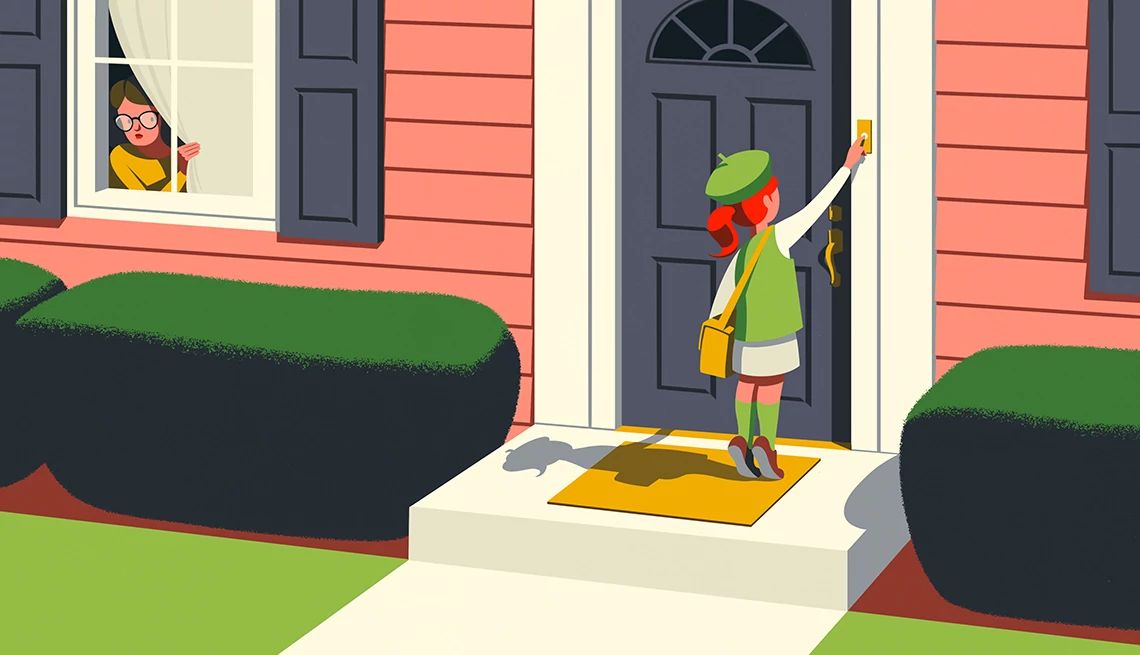AARP Hearing Center


Thin Mints. Samoas. Do-Si-Dos. We all have our favorite Girl Scout cookies, the tasty product of a fundraiser that started back in 1917.
In a typical year, Girl Scouts sell about 200 million boxes of cookies. But we don’t always have the money to buy a box.
If you’re in that boat, here’s what our financial etiquette columnist recommends.
The Girl Scouts are coming around, but between my grandkids and my church, I’ve maxed out my donation ability. I hate to say no, but the pressure to donate doesn’t feel good, either. Help!
A free cookie to anyone who can sing the Troop Beverly Hills “Cookie Time” song in full. It’s what pops into my head whenever I hear the words “Girl Scout cookies.” Those Girl Scout cookies. Man, who can resist a Thin Mint? Not me! Especially if they’re frozen.


Money Manners
Lizzie Post is AARP's financial etiquette columnist. She is the great-great-granddaughter of etiquette legend Emily Post. She’s also the co-president of The Emily Post Institute, co-author of Emily Post’s Etiquette: the Centennial Edition and co-host of the Awesome Etiquette podcast.
But you. You can resist. This is not because the Girl Scouts aren’t a worthy cause — it’s because making charitable donations, and supporting causes of any kind, is optional. It’s your choice to participate, and that choice is something that is personal to you, your values and, perhaps most important, your budget.
Whether it’s your religious institution, local hospital, shelter, food bank or other charitable organization, the ways in which you support your community — and the time and funds you have to do it — are up to your discretion and, if you wish, private. Nowhere in the world of etiquette do we say that you need to have the desire or the money to support others when they come asking. It’s great when you can make a donation to a charity or cause that you’re passionate about, but that’s not always financially feasible, and that’s OK.




































































You Might Also Like
My Daughter Spends Way Too Much Money
Poor financial habits can be a tough topic to broach. Here’s how to break the ice respectfully
My Mother Passed Away. A Cousin Thinks She’s Entitled to an Inheritance
How to deal with a rude relative while mourning the loss of a loved one
I'm Helping Pay My Grandson’s College Costs. He Wants to Waste the Money Studying Philosophy
Don’t approve of your grandchild’s major? Tread carefully